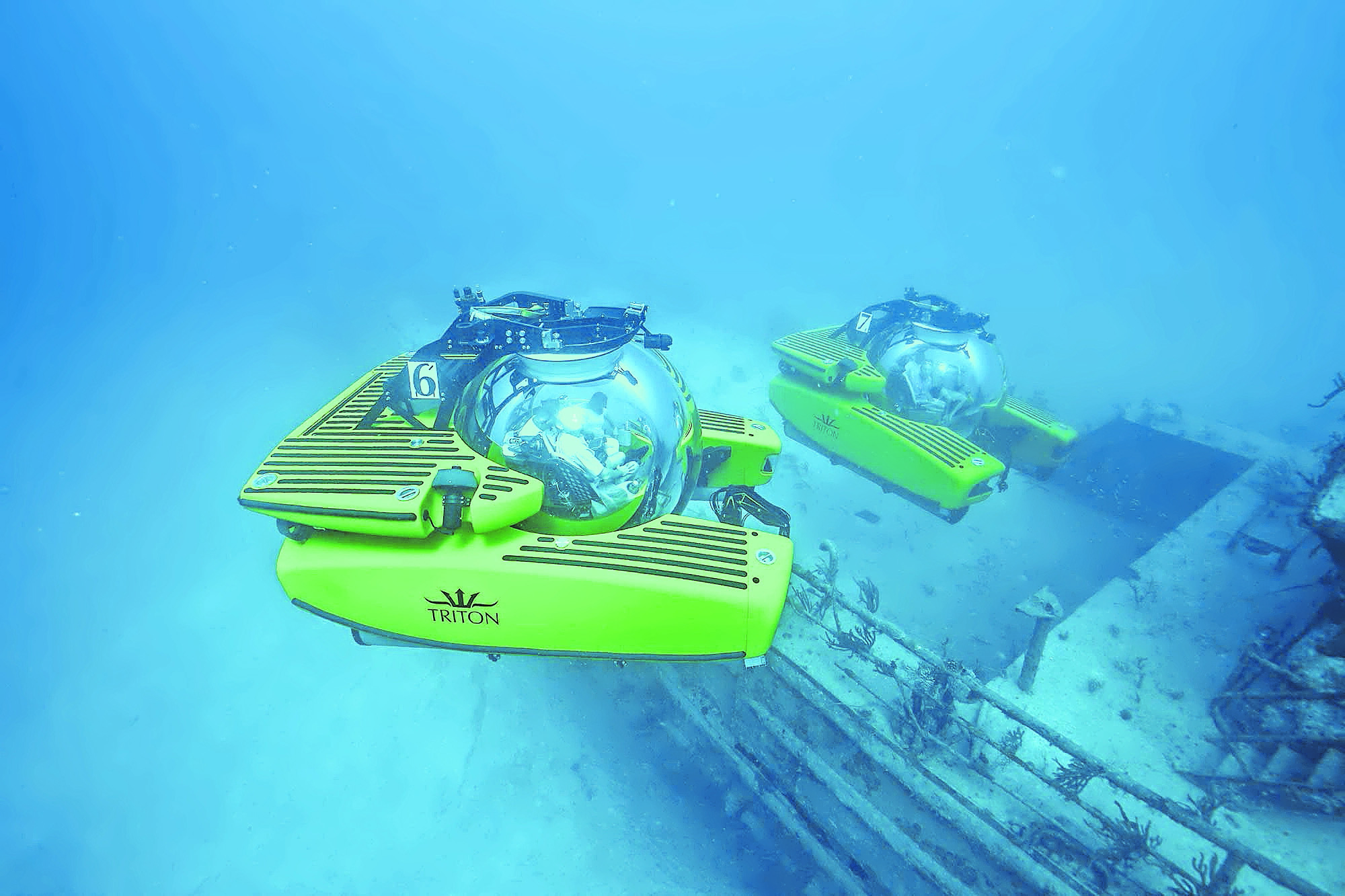Rendering of REV I, the largest, most advanced marine research platform in the world, currently being built. (Photo: REV Ocean)
When completed in 2021, the $350-million REV l will be the largest and most advanced marine research platform in the world.
REV I is part of REV Ocean https://revocean.org/, a new international marine research initiative targeting climate change, acidification, marine pollution and the over-exploitation of marine resources with innovative ocean research and solutions.
The initiative comprises three interconnected platforms: the Research Expedition Vessel (REV), the World Ocean Headquarters (WOH), and the Ocean Data Platform (ODP).
 Triton: a three-person ocean research vessel with a diving depth of 2300m that will be used by researchers on REV I. (Photo: REV Ocean)
Triton: a three-person ocean research vessel with a diving depth of 2300m that will be used by researchers on REV I. (Photo: REV Ocean)
REV I
The first REV I research mission, in the last half of 2021, will be to Arctic Norway and Greenland.
International scientists, research institutes, and innovative thinkers will submit proposals: if successful, they will have free access to the vessel and its state of the art technology for at least three years.
The 183m-long vessel will accommodate 60 scientists and 30 crew. It will be equipped with scientific trawls, sonar systems, a moonpool, underwater vehicles, advanced communication equipment, live streaming facilities, laboratories, classrooms and an auditorium.
Government leaders will be invited to take part in dialogues and events on REV I to assist them in implementing effective marine conservation policies in their home countries.
The WOH will be an incubator for the global ocean research community. The ODP will be an open source platform. The aim is to foster better decision-making and more successful conservation and utilisation of ocean resources by improving availability, access and analysis of global ocean data for all.
South Africa On Board
Professor Asgeir Sørensen, director of the Centre for Autonomous Marine Operations and Systems, in the Department of Marine Technology at the Norwegian University of Science and Technology https://www.ntnu.edu/amos gave a presentation on REV Ocean at the SANOCEAN (South Africa-Norway Research Co-operation on Blue Economy, Climate Change, the Environment and Sustainable Energy) conference.
He said: “Ocean sciences research universities like Nelson Mandela University and other relevant stakeholders and organisations in South Africa will be welcome to submit proposals and participate in the scientific campaigns organised by REV Ocean.
“There will be calls for participation on selected science topics, and an international group of independent experts headed by Dr Alex Rogers, REV Ocean’s science director, will evaluate the proposals and allocate ship time.”
Rogers, formerly a professor of conservation biology at the University of Oxford, has spent over 25 years studying deep sea and coral reefs. His focus has been on marine biodiversity and its drivers, and how to mitigate human impact on the oceans.
Links to REV Ocean information and videos https://www.facebook.com/pg/OceanREV/videos/?ref=page_internal